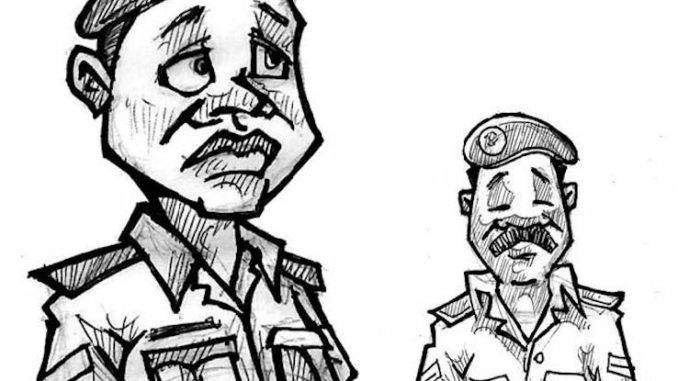
The authorities should stop wasting police officers trained at great expense
It has become fairly routine in the Nigeria Police Force to retire senior officers immediately an acting Inspector-General of Police (IGP) is appointed. Mostly endangered are officers in the ranks of Assistant Inspector-General (AIG) and Deputy Inspector-General (DIG) of Police. While we understand the reason for this high turnover at the helm, it is antithetical to morale. That many of the officers in senior cadre now resign to the fact that diligence and merit are not enough to take them to the peak of their professional career is also detrimental to an institution charged with the maintenance of law and order in our country.
This unfortunate situation was highlighted with the recent retirement in one swoop of seven DIGs by the new acting IGP, Mr Mohammed Adamu. The seven were among the 15 senior officers affected by the exercise on grounds of seniority to Adamu. Not only is this number quite high, it is also a wasteful tradition that does not take into account the huge resources the nation had spent in training these officers over a long period.
Indeed, one of the largest retirements of senior police officers occurred under Adamu’s predecessor, Ibrahim Idris. Elevated from his position as Kano State police commissioner after the 2015 general election, Idris had barely spent a few weeks in office as an Assistant Inspector-General of Police (AIG) when he was appointed the IGP. That compelled the presidency to retire more than 30 officers from the rank of AIG and DIG all at once. Aside other negative fall-out, the idea deprives the force of the benefits of competent and experienced hands to spearhead and give direction to the junior officers. No institution can afford to be throwing away such vast knowledge without consequences. In many instances, most of those affected still have between seven and 10 active years in the service.
The implications for national security are very glaring. When otherwise brilliant officers are made to believe that their career progression will not be based on performance but rather on politics, there is no way they will give their best. This practice is also counter-productive in many ways, especially as it can breed bad blood within the rank and file. We therefore implore the Police Service Commission and the federal authorities to curb the practice and find a way around the depletion of an already badly understaffed security agency. It is all the more unfortunate that some of the retirements are politically motivated, done to serve narrow interests in an institution that should strictly be guided by professional and national interest.
This development is all the more disturbing against the background that manpower has always been a problem with the police. According to the former IGP Idris, the Force loses 9,028 officers to death, dismissal and retirement annually.
While it is within the powers of the president to appoint an Inspector-General of Police from the senior cadre, it is important that there be a way to mitigate this recurrence of retiring top officers trained at public expense because of the elevation of their junior to the number one position in the force. What should be clear to the authorities is that it will be difficult to have a professional police if appointments and promotions are dictated by political considerations while security of tenure is no longer guaranteed. There must be a way to put an end to the practice.
END

Be the first to comment